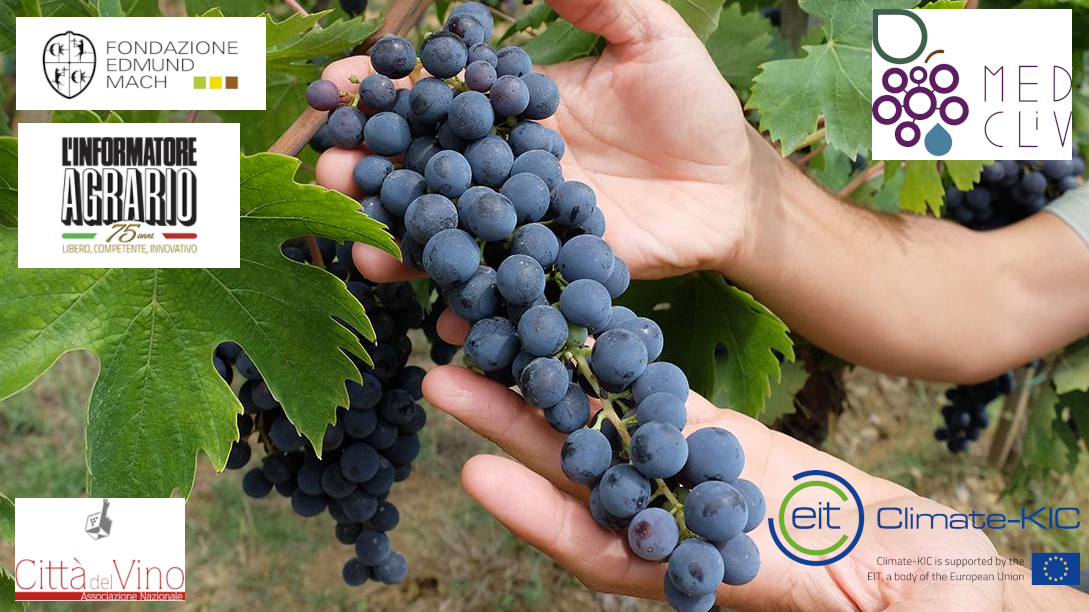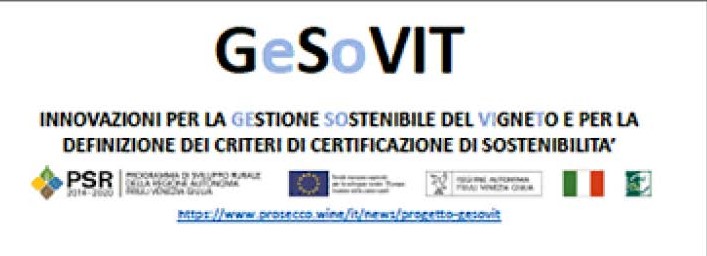Certifications for competitiveness and sustainability

Climate change has various effects on grapes physiology. It can cause the anticipation of the phenological phases or the alteration of secondary compounds’ synthesis (polyphenols and flavours). As regards to environment, global warming provokes many variations of physico-chemical, microbiological and soil fertility properties. In addition, it determines alteration of some pathogens’ lifecycles, affecting their diffusion and evolution.
With the expansion of those effects, a redefinition of production processes will be inevitable and, consequently, a significant change must be expected in production disciplinaries. This will include an adaptation of the procedures and methods for the certification of organoleptic properties, the latter not being the only predictable change.
It is certain that there will be an intense affirmation of business goals and values which will be part of this important transformation. These new goals and values will be taken up by both companies and protection consortia.
We are facing a growing importance of a sustainable and efficient wine-making approach qualification. This approach can face new challenges, strengthening the resilience of vineyards to the variation of environmental factors and reducing the impacts on viticulture.
Mitigation actions to face climate change must be certified through the validation of data obtained from environmental footprint measurement, to quantify the progressive reduction of greenhouse gas emissions from vineyard management and wine production.
Sustainability goals will change completely the way of working of companies, leading to the need of developing innovative, sustainable and measurable methods and procedures.
Sustainability certifications will obtain a key role in the challenges that climate change is creating, due to the following reasons:
- In order to get effective strategies, it is necessary to adopt a comprehensive and integrated approach. Sustainability certifications set Guidelines to follow, which are the result of a long process of confrontation between research, consulting firms and actors participating to the supply chain. Therefore, these strategies are shared and need a large scale application;
- They are certifiable by a third-party institution, therefore there is the possibility to verify and validate the adoption;
- They allow to express the added value given by the adoption of these strategies, through the apposition of the logo. This promotes a sustainable approach, because it gets recognizable for the costumer;
- The control system is based on data and it offers the possibility to monitor the adoption grade and the effectiveness of those productive strategies. This is possible thanks to the creation of indices of adaptation and mitigation to the climate change, which allow to identify possible criticism or improvements of strategies;
- The control system offers the possibility to build a database in order to create Decision Support Systems in the short term. In addition, it can provide forecasting models that can guide decisional strategies in the middle and long term.
Innovation is based on the union of all sustainability indicators in a single integrated system, where the indicators are linked to climate change. Furthermore, it can collect data and measurements, and demonstrate with a single and new indicator the rate of reduction of greenhouse gas emission. That answers the necessities underlined in the F2F strategy and in the Green Deal, of reaching “zero” climate change within 2050.
Today, in Italy we are facing an exponential growing of the sustainability certification demand. Institutions, customers and companies are demanding these kinds of certifications. Valoritalia is committed to develop those certifications, proposing the “Equalitas” certification (an evolved standard, that is known by the most important actors in North-Europe), developed for companies which act in the wine sector. Furthermore, Valoritalia, in the near future, will propose the “Standard Unico”, that will respond to the basic demand.
In the future, the main goal will be the realisation of new measurable indicators that are necessary to demonstrate the “ZERO CLIMATE CHANGE- WINE ZERO”. The pilot study is in progress.
Authors: Sandra Furlan – Anna Paiola (Valoritalia)
Σχέσεις
- Δίκτυο
- Λίστα
- Γεωτοποθεσία
- Περισσότερα
GeSoVit - Innovazioni per la gestione sostenibile del vigneto e per la definizione dei criteri di certificazione di sostenibilità ambientale per l'azienda vitivinicola
Adozione di nuove pratiche per una generale riduzione dell’impatto ambientale e protocolli propedeutici e funzionali per la certificazione di sostenibilità ambientale dell’azienda vitivinicola
- Περισσότερα
Les vins d'appellations vont-ils disparaître ou renaître avec le changement climatique ?
En France, plus de de 90% de la production des vins est signalée par des indications géographiques, AOP ou IGP, mais le changement climatique vient remettre en cause les liens construits historiquement entre es vins et leurs territoires, inscrits dans des cahiers des charges.
- Περισσότερα
OENOMED - Qualification et Promotion des filières vitivinicoles des Aires Protégées de la Méditerranée
OENOMED vide à aider les petites et moyennes entreprises viticoles à valoriser les efforts de préservation des ressources patrimoniales méditerranéennes à travers la création d'une marque qui reconnaît la mise en place de pratiques durables sur des espaces naturels protégés.
- Περισσότερα
Unité Mixye de Recherche INNOVATION
l'UMR Innovation vise à produire des connaissances et contribuer aux débats scientifiques et sociétaux sur les processus d’innovation qui participent aux transformations des systèmes agricoles et alimentaires, face aux enjeux globaux, dont le changement climatique



